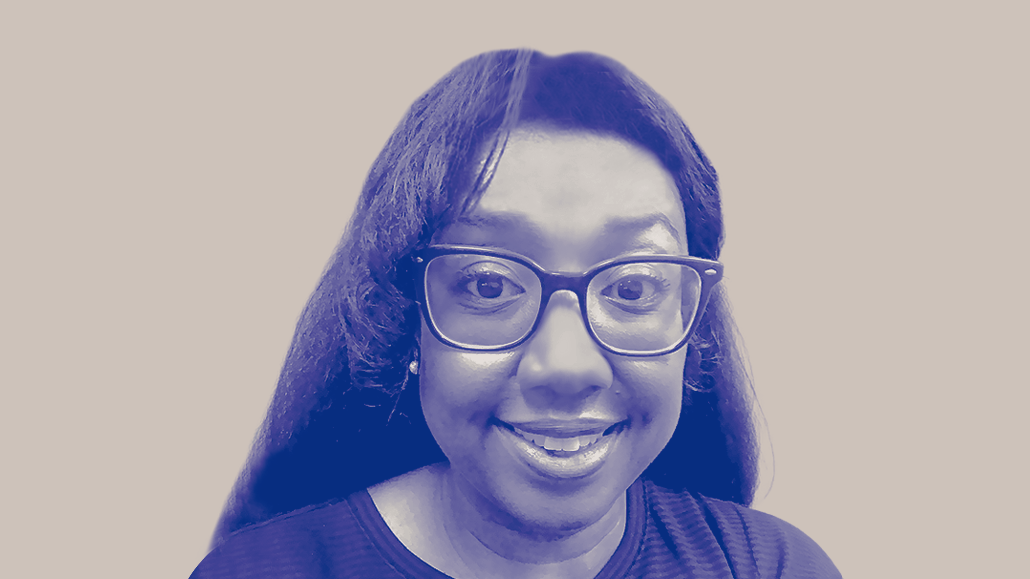Secure your place at the Digiday Media Buying Summit in Nashville, March 2-4
‘Connecting with diverse audiences’: Mashable’s new editor-in-chief wants to add coverage of inclusion in tech

Alesha Williams Boyd will become the first woman of color editor-in-chief at Mashable on Jan. 31 – cracking the typically white male-dominated ranks of top editors at publications that cover tech and digital culture. Previously the senior digital director at USA Today Network, she spoke with Digiday about the “persistent” gender and diversity gap in tech, and how she hopes to build on Mashable’s coverage in this area to make it accessible to a larger audience.
Williams Boyd will report to Ronak Patel, svp of publishing at Ziff Media Group, the parent company of Mashable. She will oversee a team of over 50 reporters, editors and writers, including Mashable’s U.K. and Australia teams. At the USA Today Network, Williams Boyd led a team of about 150 digital journalists in over 100 newsrooms. She also helped lead audience engagement and optimization strategies for USATN’s social media and newsletter efforts.
This conversation has been edited and condensed.
I think you might be one of the only women of color leading a tech publication’s newsroom right now. What is the significance of that to you?
There’s clearly this persistent digital divide. There are challenges for women of color and the talent is out there, the skills are out there, the leadership is out there. It’s up to us as leaders and organizations to make that effort and do the searches, to make sure that we are reaching out connecting with the right pipelines to grow that talent and move those folks into leadership roles. We have this gap in gender and diversity. Young boys are being pushed into STEM and girls are still being pushed into other areas. Women and diverse groups are more driven to tech-driven job displacement, too. We need women in these spaces to help shape what tech looks like so we are not left out of the future. We see this over and over again. We can’t shape this world if we’re not in the room where these decisions are happening.
Will diversity be an area of focus for you at Mashable – both in terms of future hiring and coverage?
I haven’t walked through the door just yet – but I know it’s definitely going to be part of the conversation. Tech journalism can play a huge role in what we’re talking about in this conversation. We want to make it accessible, explanatory and reach audiences where they are, to have those conversations. Mashable has done such wonderful work to be inclusive. I want to build on that, like the content around accessibility. What we can do to build as we go forward is every organization wants to be better at connecting with diverse audiences and creating content that diverse audiences want to consume. I think we can be strategic about that – intentional about that. I think this newsroom is excited about doing that and is passionate about diversity and inclusion. We want to continue to build on the work that Mashable has already done looking at that gap for diversity, for women in tech. [Williams Boyd later added in an email: “We’ll certainly be taking a look at how we can build on Mashable’s efforts to incorporate diverse voices into what we do, whether that’s through our sourcing, partnerships, hiring and freelancers, or continuing to elevate diverse voices already in the room.”]
What will be your No. 1 focus as editor in chief for the first part of this year?
I’ve spoken to Ronak about this at length: My first order of business is just listening. I’m having one-on-ones with the entire newsroom. I want to hear from journalists what they’re passionate about, what work they’ve done that they’re proud of, what kind of content they’ve created that’s really resonated with audiences – and continue to build on that. You can dictate a grand vision but it doesn’t mean a whole lot if you haven’t spoken to the journalists who are doing the work. You need to have those conversations and build a vision together. Leading a large team means we’ve got leaders within this group, and we really want to be able to listen and empower them to help the group grow in the spaces that they want to grow.
More in Media

Creators eye Snapchat as a reliable income alternative to TikTok and YouTube
Figuring out the Snapchat formula has been very lucrative for creators looking for more consistent revenue on a less-saturated platform.

In Graphic Detail: Subscriptions are rising at big news publishers – even as traffic shrinks
Publishers are raising prices, pushing bundles and prioritizing retention to make subscriptions a steady business amid volatile traffic.

WTF is Markdown for AI agents?
AI systems prefer structured formats or APIs to ingest and surface content more efficiently. And “markdown” has quickly become the common language used by AI systems and agents.








